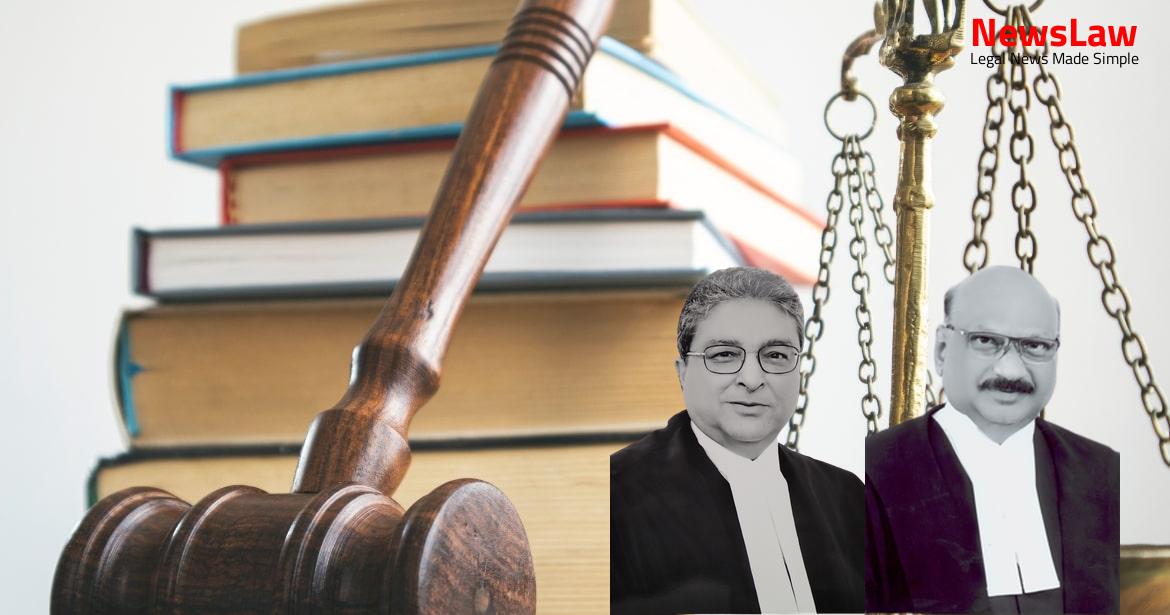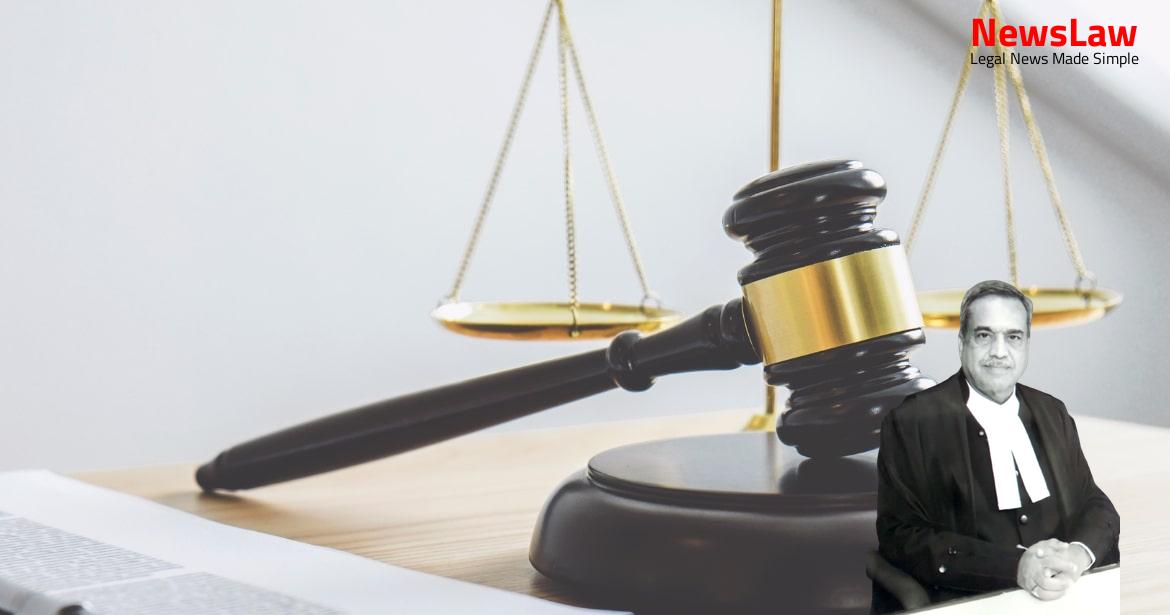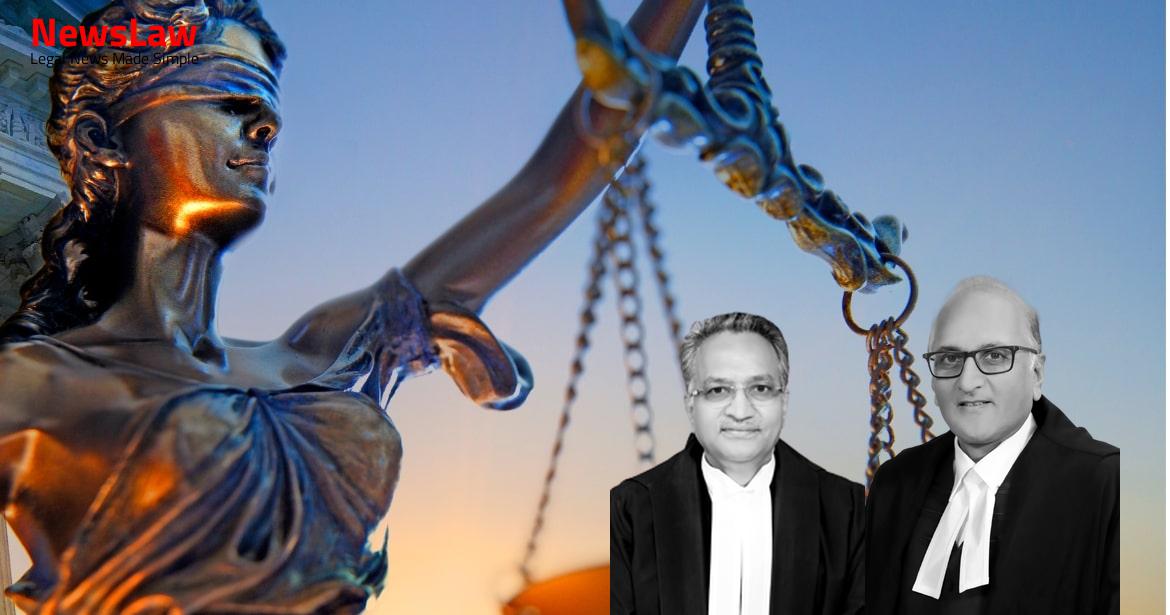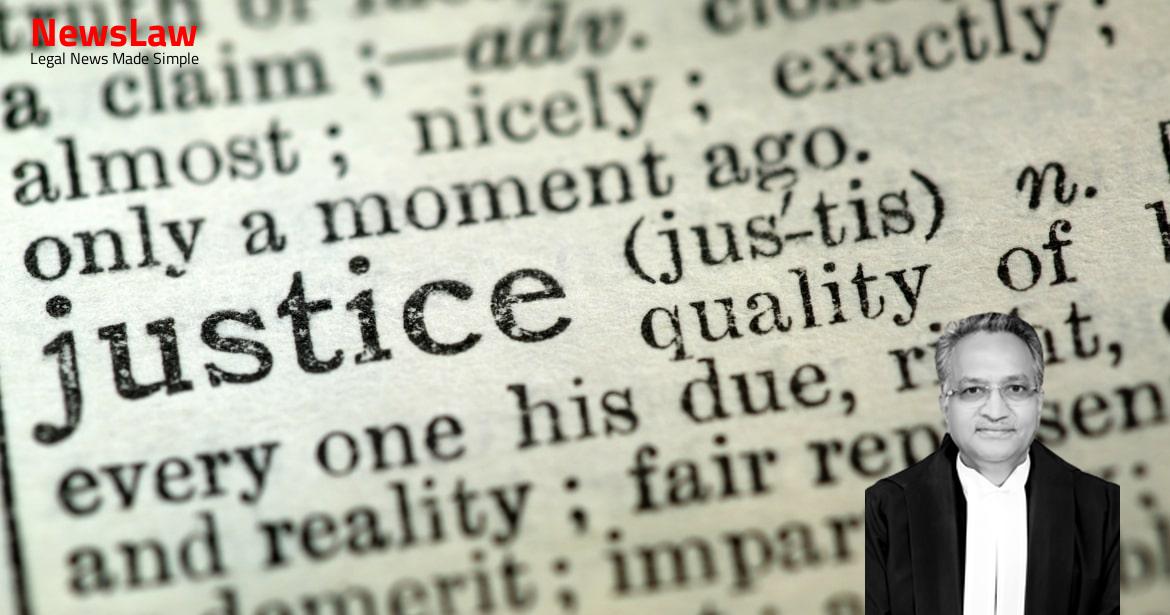The recent legal cases have delved into the intricate relationship between probation periods, departmental examinations, and the determination of seniority. The courts have grappled with interpreting relevant rules and regulations governing the confirmation of government servants after probation. This summary focuses on the legal implications and analyses put forth by the court regarding these contentious issues.
Facts
- The Appellant in the lead matter joined the service as Deputy Collector on 01.07.1996 after being selected by the Madhya Pradesh Public Service Commission.
- Appellant was put on probation for two years and was required to clear a departmental examination within that period.
- Probation period can be extended for one year but the departmental examination must be cleared during the extended period.
- Appellant could clear the examination on 28.01.2001, more than three years after the initial appointment.
- The judgment of the Full Bench in Writ Appeal No.607 of 2011 and connected matters was challenged in SLP (C) No.20288 of 2012 and other connected matters.
- If a probationer does not qualify the departmental exam within the probation period or its extension, they shall be deemed a temporary government servant and governed by the Rules of 1960, without addressing the issue of seniority.
- The direction in Clause 4 of the Full Bench judgment is not contrary to the spirit of the Rules of 1960.
- The case is deemed appropriate for referral to a Larger Bench to address the aforementioned issues.
- The Registrar (Judicial) is requested to present the matter to the Hon’ble Chief Justice for necessary action.
Also Read: Legal Analysis on Arbitration Petition Limitation Period
Issue
- The judgment of the Full Bench relied on Rule 8 of the 1961 Rules regarding the issue of probation.
- However, Rule 3 specifies the applicability of either the Rules of 1961 or the Rules of 1975 when there is a special provision.
- In this case, the service of the petitioners or intervenors falls under the Rules of 1975, where Rule 13 addresses the issue of probation.
- Therefore, the Full Bench judgment should be reconsidered in this context.
Also Read: Analysis of High Courts’ Jurisdiction and Court Orders Under Article 142
Arguments
- The controversy regarding the status of a temporary government servant and applicability of Rule 12 was previously considered by the Division Bench in 2009.
- A Full Bench of the High Court also had the opportunity to review the matter due to a reference made by the Division Bench.
- The counsel for the Appellants argued that as per established precedent, a reference to a larger Bench should only be made if the earlier decisions were clearly wrong or incorrect.
- The special leave petitions and review petitions related to the matter were dismissed by the Court in 2017, indicating a settlement.
- Despite the settled nature of the matter, the Division Bench made a reference to a larger Bench for further consideration.
- The State relied on previous court decisions to argue that passing a departmental examination is crucial for determining seniority.
- The senior counsel for some private respondents highlighted the importance of understanding the interaction between Rule 8(7) and Rule 12 of the Madhya Pradesh Civil Services (General Conditions of Service) Rules, 1961.
- The issue of determining the seniority of direct recruits who did not pass the departmental examination has been conclusively settled by the High Court twice.
- It would be a grave miscarriage of justice to reopen the issue after the Supreme Court’s dismissal of the Special Leave Petition and review in two rounds of litigation.
- Mr. Shrivastava, the senior advocate for the Appellants, emphasized in his written submission that the matter is no longer res integra and has been decisively resolved previously.
Also Read: Electoral Malpractices in Mayor Election
Analysis
- Extension of probation period due to fault of employee results in assigning seniority from the date of clearing departmental examination
- Probationer cannot draw increments until confirmed
- Probation period can be extended for up to one year for sufficient reasons
- Termination of probationer’s services possible if not shaping into suitable government servant or failing departmental exams
- Confirmation in service upon successful completion of probation and departmental exams, provided permanent vacancies exist
- Probationer deemed to be in temporary government service after probation period if not confirmed
- Assigning lower seniority to a probationer if probation period is extended not due to fault of the employee
- Seniority determination based on order of merit for direct recruits and promotees
- Seniority rules apply to members of the service
- Rules for determining seniority include provisions for appointees promoted based on selection committees or seniority
- Probationer must pass departmental examination by the end of extended probation to be deemed confirmed or remain as a temporary employee
- Retaining original seniority allowed when probation period extension is not due to employee’s fault
- The order dealt with three categories of officials based on their clearance of departmental examinations: those who cleared it within the initial two-year probation period, within the extended one-year probation period, and after the extended probation period.
- The Division Bench noted that previous decisions had not considered the effect of Rule 13 of the Rules of 1975 on the issue. The challenge raised highlighted the entitlement to increments during the extended probation period.
- Rule 12 of the Rules of 1961 determines seniority based on the order of merit in recommendations for appointment. The Full Bench decision was challenged, leading to dismissal by the Supreme Court.
- Those officials who passed the departmental exam after the extended probation period saw their seniority revised in reference to the date of passing the exam.
- The Division Bench’s judgment in Writ Appeal No. 510 of 2009 raised questions to be considered by a larger bench concerning the Rules of 1960, 1961, and 1975, as well as directions from the Full Bench.
- The issue of seniority was a point of contention, specifically regarding the completion of probation and passing of departmental exams within the designated timeframes.
- The consequences of not passing the departmental exam within probation included being deemed a temporary government servant until completion, with implications on seniority.
- The significance of departmental examinations in ensuring competence for quasi-judicial roles was emphasized, indicating the importance of completing exams within set probation periods.
- The need for confirmation post-exam was highlighted, affecting seniority from the date of passing the exam.
- The rule interpretation and disputes over seniority were noted as recurring issues in the cases mentioned.
- Probationers who have not passed the departmental examination by the end of the probation period will be deemed to have been refused confirmation.
- Such probationers will be considered as temporary government servants from the date of the probation period’s expiry.
- The Full Bench and various court cases support this interpretation over considering probationers as temporary employees upon passing the departmental examination.
- Assigning seniority in a lower level is possible for probationers who do not pass the test.
- Probationers cease to be part of the initial rules and become governed by rules applicable to Temporary Government Servants after the probation period.
- The ‘Deeming Fiction’ created by Rule 13(7) results in probationers becoming Temporary Government Servants after 3 years.
- The rules regarding probation status and rights have been upheld in various court cases including M.P. Chandoria vs. State of Madhya Pradesh.
- Probationers must undergo training and pass departmental examinations during their probation period.
- Effect of non-consideration of Rule 13 of 1975 Rules on the earlier occasion to be considered
- Impact of previous decisions of the Court on the controversy in question to be analyzed
- Justification of the reference will be taken into account by the bench answering the reference
Decision
- We accept the submission to place the matters before a bench of three Judges.
- The bench will consider whether the decision of the Full Bench on the earlier occasion needs reconsideration.
- The matters will be reviewed purely on their merits, not influenced by previous dismissals of Special Leave Petitions or Review Petitions.
- No view has been expressed on the merits of the matters.
- The Appeals are disposed of with no costs awarded.
Case Title: WARAD MURTI MISHRA Vs. THE STATE OF MADHYA PRADESH (2020 INSC 426)
Case Number: C.A. No.-002601-002601 / 2020



